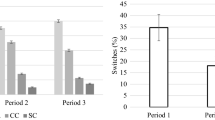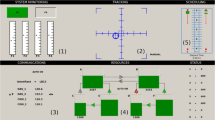Abstract:
In this paper we argue that substitution-based function allocation methods (such as MABA-MABA, or Men-Are-Better-At/Machines-Are-Better-At lists) cannot provide progress on human–automation co-ordination. Quantitative ‘who does what’ allocation does not work because the real effects of automation are qualitative: it transforms human practice and forces people to adapt their skills and routines. Rather than re-inventing or refining substitution-based methods, we propose that the more pressing question on human–automation co-ordination is ‘How do we make them get along together?’
Similar content being viewed by others
Explore related subjects
Discover the latest articles, news and stories from top researchers in related subjects.Author information
Authors and Affiliations
Additional information
Correspondence and offprint requests to: S. W. A. Dekker, Department of Mechanical Engineering, IKP, Linköping Institute of Technology, SE - 581 83 Linköping, Sweden. Tel.: +46 13 281646; fax +4613282579; email: sidde@ikp.liu.se
Rights and permissions
About this article
Cite this article
Dekker, S., Woods, D. MABA-MABA or Abracadabra? Progress on Human–Automation Co-ordination . Cognition Tech Work 4, 240–244 (2002). https://doi.org/10.1007/s101110200022
Issue Date:
DOI: https://doi.org/10.1007/s101110200022




